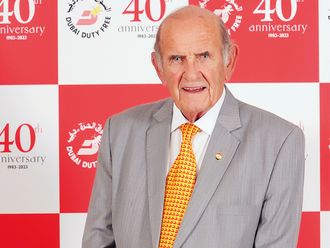
Abu Dhabi: Lufthansa Group’s top executive said on Wednesday that aviation companies around the world need to push the industry harder in order to counter the growing protectionist movements around the world.
Speaking at a press conference in Abu Dhabi, Carsten Spohr, chairman and chief executive officer of Lufthansa Group, described protectionism as a “dangerous” trend.
“With doubts now in regards to globalisation coming up around the world, what better answer is there than aviation. We’re the good guys of globalisation. We make globalisation feasible for millions of people around the world.
“So, I think, the more we see the dangerous trend of protectionism, the more we, as leaders in aviation, need to push our industry, including partnerships like this, to make globalisation positive for as many people around the world,” he said.
Code-share
Spohr was speaking at an event to announce a new commercial partnership between Etihad Aviation Group and Lufthansa. He added that the aviation sector “builds credibility of globalisation,” and that he was not worried about being able to continue that.
Asked about protectionism and what it means for the carrier, James Hogan, president and chief executive officer of Etihad Aviation Group, said: “We are not flying into any further points in the USA, so we’re very comfortable with our American network. We code-share with other airlines to stretch that network, and as we have in the past, we just work through these issues.”
Donald Trump’s victory in the American presidential elections in November last year as well as the UK’s decision to leave the European Union were backed by a rhetoric of protectionism and a notion that free trade has not benefited lower-income workers.











